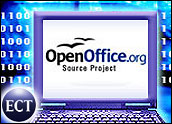
With the recent education efforts on Software Freedom Day and aggressive moves by IBM and Novell, it seems that open-source advocates have much to cheer about.
Although open-source operating systems have not yet become the standard in corporate and consumer environments, and face plenty of competition, several recent initiatives have shown that it is becoming more prevalent worldwide and has the potential to grow even more. Linux, in particular, is seeing increased popularity all over the map, from Korea to Germany to Brazil.
Here is a glimpse at some of the major open-source initiatives that are changing how computing is done on the planet.
Asia Major
One of the most powerful areas to embrace Linux and open source has been Asia, which has seen a boom in interest for the operating system over the past year.
Japan’s Economy, Trade and Industry Ministry announced it was doing a major push to encourage Linux use in the country’s school system. The effort fits in with the Ministry’s desire to see Linux gain greater share in companies.
Currently, Windows has more than 90 percent of market share for Japanese PCs, and the Ministry is eager to change that number. It has sent Microsoft official warnings about its licensing agreements in the past and issued statements about its Linux preferences.
In China, anti-Microsoft sentiment seems even more rabid, and officials have issued a call for a “homegrown” open-source operating system that can replace Window’s dominance.
Other parts of Asia are just as keen to bring open source forward. On Thursday, IBM Korea and Samsung announced a partnership designed to develop and market corporate server solutions jointly using Linux. This is similar to another recent joint project, which saw Red Hat hooking up with Unisys to boost Linux’s presence in South Korea’s Internet data center market.
The success of Asia is being carefully watched, Yankee Group analyst Laura DiDio told LinuxInsider. “It’s a huge market, and everyone is interested in it,” she said. “So it makes sense that people would look at what’s happening there, and how well they make Linux work.”
European Centre
DiDio noted that, at the same time that observers are watching Asia to see how well open source spreads there, Asian countries are paying careful attention to what is going on in the EU. Litigation against Microsoft in those countries could indicate how Asia proceeds with its own antimonopoly strategies, she noted.
The most recent drama in Europe involved Munich, which announced that it was going with Linux, then that it was not, and finally that the city would put the plan back into motion. The city had unveiled a migration strategy, only to balk over patent concerns. But in early August, the city noted that it was proceeding, and reiterated its commitment to open source.
Other European countries have had governmental entities that chose Linux as well, including Austria, Norway and England.
Gartner analyst Andrea Di Maio told LinuxInsider that many European countries are taking a close look at cost issues. Although Linux vendors tout the lower costs of open source, Di Maio noted that the numbers can be more complex than they claim when migration costs are factored in.
Di Maio, who works in Gartner’s Italian office, added that even as that happens, he expects Linux to gain a much stronger foothold in Europe in coming years. “It’s growing here, most definitely,” he said. “It will keep growing, too. I think that governments need to be more aware of what goes into the costs, but that won’t stop Linux adoptions.”
Continental Drift
Although Asia and Europe have gotten attention for their open-source moves, many other parts of the world have been investigating Linux and other open-source systems as well.
Part of the wider Linux adoption is due to efforts from companies like IBM, which has been busy establishing worldwide Linux centers. Its most recent, announced this week, is in Brazil.
In conjunction with Brazil’s Information Technology Institute, with support from the country’s Ministry of Culture, the center will encourage the use of open-source solutions by professionals.
Also, the recent establishment of Software Freedom Day sparked grassroots efforts globally to highlight the benefits of open source and encourage greater use of Linux and other systems.
“Open source is ready to move beyond the world of geeks,” said Dwayne Bailey, founder and director of the Zuza Software Foundation, which is translating OpenOffice into several South African languages.
He added, “There are so many companies and individuals that want to see open source succeed all over the world, and it’s exciting to be part of that.”





















































